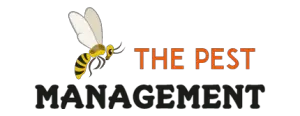Would you like to feed caterpillars to your chickens? Which caterpillars are poisonous to chickens?
What are the risks of feeding your chickens caterpillars? What is an easy way to tell if a caterpillar is poisonous?
In this article, we will find out what caterpillars are poisonous to chickens.
What Caterpillars Are Poisonous to Chickens?
Caterpillars that are brightly colored with fuzzy bristles on them tend to be poisonous. Other caterpillars such as the monarch caterpillar are dangerous when ingested.
You will need to examine the caterpillars in your garden and make sure that you are not feeding your chickens ones that are spiky or brightly colored.
Stick with smooth, green caterpillars that you may find and offer them to your chickens for a nourishing meal.

Do Chickens Eat Caterpillars?
Yes. Chickens love to eat plenty of insects including bugs and caterpillars. identifying the species of caterpillars will help you decide if they are safe for your chickens to eat.
The general rule of thumb is to avoid hairy or fuzzy caterpillars. While not all of them are poisonous, it’s easier to use such a simple rule to avoid your chickens from becoming sick or dead
These hairs can contain venom inside their hollow bristles. While a human could end up with smaller symptoms such as itchy fingers or skin irritation, a chicken can die.
Which Caterpillars Are Poisonous For Chickens?
Compiling a large list of poisonous caterpillars for chickens, pets and humans alike would reach up to 100 when looking at different subspecies.
Underneath we’ve compiled a small list of caterpillars that are poisonous in the US and across the world. They are usually fuzzy, spiny, hairy and brightly colored.
- Moth caterpillars
- Puss caterpillars
- Saddleback Caterpillars
- Buck moth caterpillars
- Flannel moth caterpillars
- Monkey Slug Caterpillar
- Hickory Tussock Caterpillar
- Puss Caterpillar
- Spiny Oak Slug Moth Caterpillar
You can discuss this topic with your local authorities in charge of nature preservation who have a better idea which caterpillars are prevalent in your area. Avoid caterpillars with spikes and hairy bristles.

The Risks of Feeding Caterpillars to Chickens
If you wish to feed caterpillars to your chickens keep in mind that some of them can carry parasites. Other caterpillars can contain toxins. Either way many chickens can get sick or die.
Feed your chickens caterpillars that have been raised in clean environments. If you are sure they are free of parasites and toxins, then they are incredibly nourishing for your birds.
Another way to ensure that they are safe to eat is to cook them before feeding them to your chickens. This would greatly reduce the harm or risk of any diseases.
How to Safely Feed Your Chicken Caterpillars
The first step to feeding your chickens caterpillars is to make sure that the certain species that you are looking at is safe for your chicken to eat.
- Supervise your chickens when they are eating caterpillars.
- Clean up any leftovers that your chickens don’t fully eat. Leaving caterpillar carcasses around can attract more predators.
- Caterpillars you find in your garden without bristles or spines on them are safer to feed to your chickens.
- You are aware of any pesticides or chemicals in your own garden and it would be safer to feed your chickens caterpillars that come from your property.
- A final precaution is to consider cooking the caterpillars first to release their toxins or diseases that some may carry.
Conclusion
Caterpillars with spikes, hairs bristles or bright colors are not recommended to be fed to chickens. There is a chance of some of these caterpillars are not poisonous, but we recommend that you do not take that risk.
There are plenty of safer caterpillars without bristles or hairs that you can give to your chickens.
Chickens really love to eat caterpillars so it would be a shame to prevent them from eating such a nutrient rich snack.
Thanks for visiting ThePestManagement.com for the best information to help you to make the pest control process easy, safe & affordable.
